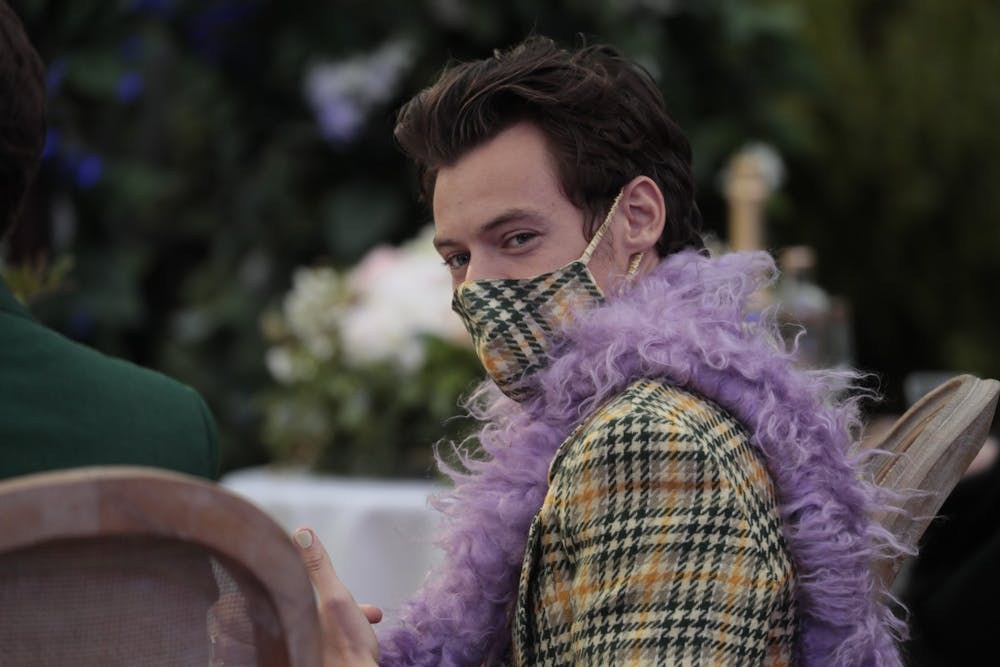Harry Styles released his new beauty brand, Pleasing, Nov. 15, and its predicted success reveals men can succeed in the beauty industry. So, why is that not the same for women?
I am a vehement Styles fan. His album "Fine Line" likely has a permanent position on my Spotify Wrapped for years to come. However, supporting an artist doesn’t prohibit me, or anyone else, from evaluating their actions.
There are some positive elements of the brand. Styles and other male celebrities embracing femininity helps empower men to reject oppressive gendered expectations of dress and can help to dismantle the gender binary that disenfranchises men, women and nonbinary people. Furthermore, there is representation for different ages and races displayed within the few images on the website.
However, Pleasing highlights a problematic tendency within the beauty industry and other female-dominated fields that is worth discussing.
Men, such as Styles, succeed in female-dominated industries — like the beauty industry — more easily than their female counterparts. Pleasing launched a week ago and already has almost a million followers on the brand’s Instagram.
To put this into context with the success of a female celebrity, Selena Gomez launched her beauty brand, Rare Beauty, over a year ago and the brand account has only garnered 2.8 million followers, despite her having 232 million more followers than Styles on her personal account. Regardless of Gomez’s personal success, her business endeavors, even within a female-dominated field, are not nearly as successful as Styles'.
This trend is observable within many professions.
For instance, on YouTube, the most popular beauty content creators are men. James Charles (24.5 million subscribers, started in 2015) and Jeffree Star (16.2 million subscribers, started in 2015) dominate the scene. Creators like NikkieTutorials (13.8 million subscribers, started in 2008) and Michelle Phan (8.8 million subscribers, started in 2006) are in the lead for female beauty creators.
A phenomenon known as the glass elevator or escalator is at play in these scenarios. This is a sociological concept showing that men succeed more quickly than women, even in female-dominated fields.



